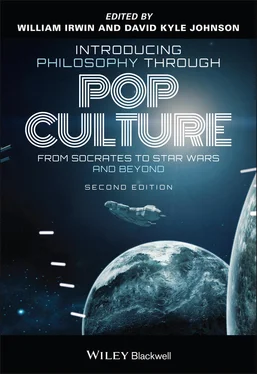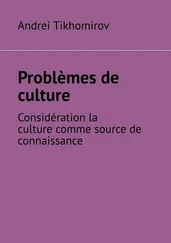Contrary to its aims, cultural moral relativism can actually promote intolerance between cultures. For example, during the Third Reich in Germany, the oppression of Jews was accepted as moral by the majority. Thus, according to cultural moral relativism, the intolerance of the Nazi party was morally justified. Of course, you probably do not agree … despite what Colbert's “child‐safe Nazi” video might have made some think, 18 and the fact that Valkyrie taught us that there were “some good Nazis.” 19 Thus, cultural moral relativism is hard to swallow. 20
The follies of cultural moral relativism do not stop there, however. Consider the United States when it was founded. Slavery was a culturally accepted practice. According to cultural relativists, that means that (at that time), in the United States, slavery was not morally wrong. And they are not just saying that it was not seen as morally wrong; that's obvious, since the majority accepted it. More dramatically, the cultural relativist would say that slavery actually was morally acceptable. Not only is this contrary to intuition – slavery was wrong even before we figured out it was wrong – but it means that the abolition of slavery was not a real step forward in moral progress for the nation. To progress morally, one must stop doing something wrong and start doing something right. According to the cultural moral relativist, however, when America abolished slavery it went from doing something right (majority approved slavery) to something else right (majority approved abolition). It did not progress morally; it just changed its definition of what was moral. Obviously most will think this absurd because obviously most think slavery was wrong and that we obviously made moral progress as a nation by abolishing it. If we had not, Colbert would not have sung Honest Abe – our greatest non‐Reagan president – “Happy Birthday” on his 200th. 21
So, the principle of charity demands we conclude that Colbert is not a cultural relativist. He does not really think that the entire body of human knowledge works like Wikipedia used to. He does not really think that “[t]ogether we can create a reality that we can all agree on – the reality we just agreed on.” 22 Wikialty is just one of his “WØRDs.” 23
Truthiness (Intuitionism)
like our Founding Fathers, I hold my Truths to be self‐evident, which is why I did absolutely no research. I didn't need to. The only research I needed was a long hard look in the mirror.
– Stephen Colbert
From the introduction of I Am America (And So Can You!)
[They] cannot be mistaken in what they feel. [This is how] they support themselves and are sure reason hath nothing to do with what they see and feel in themselves: what they have a sensible experience of admits no doubt, needs no probation … It is its own proof and can have no other.
– John Locke
An Essay Concerning Human Understanding 24
Speaking of WØRDs, on his very first show, Colbert coined a new word in his segment “THE WØRD.” That word, of course, was “Truthiness.” 25 Thanks to our humble correspondent, “truthiness” is now an official English word; in fact it was Merriam‐Webster's Word of the Year in 2006. 26 Something has truthiness if your gut tells you it's true. To think with the gut is to accept something's truthiness as evidence that, in fact, it is true. On his show, Colbert constantly professed to be a gut thinker. But we know he cannot have been serious because gut thinking is ridiculous.
Locke (1632–1704) called gut thinkers, “enthusiastic.” The problem with gut thinking is that it provides insufficient evidence. People's intuitions vary widely and no one has reason to think their gut gets things right more often than anyone else's. Locke points out that gut thinkers are essentially arguing in a circle. “This is the way of talking of these men: they are sure because they are sure, and their persuasions are right only because they are strong in them.” 27 In other words, they trust what comes from their gut because they think it gives them the truth, but they think it is true because it comes from their gut. This is like pulling yourself up by your own bootstraps – it does not work.
Locke argues that, if something is really true, it can stand up to rational inquiry and should be subjected to it. So one's gut should be tested. If it happens to get things right, it will be proven and then can be justifiably believed. If it gets things wrong, it should be abandoned. Locke points out that even the prophets of the Old Testament knew this, for when they received a revelation from God, they did not merely trust their gut instinct that it was God, but asked for signs to verify the revelation's source. For example, Gideon in Judges 6 asks a voice to prevent a fleece from getting wet in the morning dew to verify that it is God's voice. God sometimes even provided the sign without asking, like with Moses and the burning bush. You may not be like Report‐Colbert, who thought science should aim to make the world more like the Old Testament (by strapping rockets onto the Sun to make it orbit the Earth) 28 – but the lesson remains the same; gut feeling is not good enough to justify beliefs on its own.
Thinking from the gut should not be confused with “appealing to intuition.” Philosophers will sometimes use their own intuition as a litmus test; if an argument or position is contrary to their intuition, then the argument or position is thought to be faulty. But the intuitions in these cases are almost universally accepted and thus are thought to point to facts. For example, a philosopher might argue, “Jimmy's (Colbert's director's) ethical theory can't be right because if it is, that would mean that it can be acceptable to torture babies just for fun – and that can't be right.”
If the intuition is not as universally accepted as “baby torture = wrong,” the philosopher will not think the theory is refuted, but merely point out the theory's cost. “Esteban Colberto's (Colbert's Cuban alter ego's) ethical theory implies that discrimination can be okay; so if you accept that theory you will have to abandon your intuition that discrimination is always wrong.” (This might be said in a debate about affirmative action – which, of course, Colbert would never have taken part in since he said he was colorblind and literally unable to tell the difference between the colors black and white – although he did still discriminate against bears.) Philosophers will sometimes defend gut feelings with an argument. But good philosophers will never let their gut be the last word. If their argument fails and their gut is disproven, they reject what it says in favor of the truth.
In his bestseller Blink , Malcolm Gladwell argued that when it comes to recognizing danger and “reading people,” our gut is actually more trustworthy than our intellect. 29 However, Blink 's thesis has been largely discredited, 30 and Colbert was suggesting that gut thinking can justify beliefs about issues as cerebral as politics and philosophy. So, Gladwell cannot be used to defend Colbert's suggestion.
I was surprised to discover, though, that some philosophers think that gut thinking can be acceptable, even in politics and philosophy. In “Truth, Truthiness, and Bullshit for the American Voter,” 31 Matthew Peirlott argues that, even when it comes to important political and philosophical issues, one can be allowed to think with one's gut to draw a conclusion. Regarding major political matters, there is a large amount of information one has to process and verify before one comes to a truly informed decision. Peirlott argues, because so many different people are giving us this information, and it's hard to determine “which facts are facts,” 32 we are allowed to choose who to listen to with our gut.
Читать дальше












